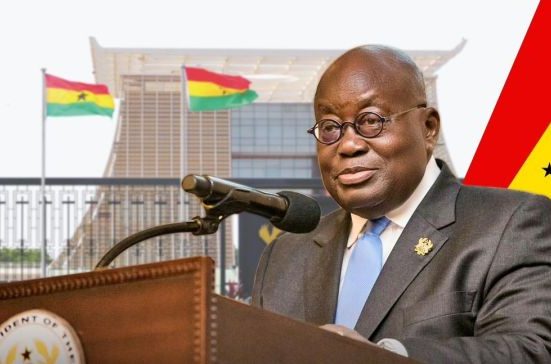South Korea’s impressive transformation from a war-ravaged nation in the early 1950s to a prosperous economy by the late 20th century has been extensively examined and admired. T
he 1960s marked a significant turning point for South Korea, as it embarked on a rapid process of industrialization and economic growth, often referred to as the “Miracle on the Han River.” Studying the factors that contributed to South Korea’s success during this period can provide valuable insights for countries like Ghana, which are also striving for economic development.
There were several key factors that played a crucial role in South Korea’s achievements:
1. Strong government leadership and vision The leadership of President Park Chung-hee was instrumental in South Korea’s economic development. He had a clear vision that prioritized industrialization and export-led growth.
The introduction of Five-Year Plans in 1962 provided a structured approach to development, setting clear goals and effectively mobilizing resources.
2. Export-led industrialization South Korea shifted its focus from a closed economy to one that emphasized exports. The government provided incentives for export industries, leading to rapid growth in sectors such as textiles, electronics, and automobiles. By integrating into the global market, South Korea was able to leverage its competitive advantages and benefit from international trade.
3. Investment in education and human capital The government made significant investments in education, ensuring a highly skilled and educated workforce. This was crucial for supporting industrial growth and technological advancement. Emphasis on vocational training helped create a workforce that was well-equipped to meet the demands of an industrializing economy.
4. Infrastructure development Massive investments in infrastructure, including transportation, communication, and energy, provided the necessary support for industrial activities. These factors collectively contributed to South Korea’s remarkable economic transformation, and they serve as valuable lessons for countries like Ghana that are striving for similar development.
Rural development initiatives: Initiatives such as the Saemaul Undong (New Village Movement) successfully enhanced rural infrastructure and productivity, resulting in a reduction of disparities between urban and rural areas.
5. Assistance from abroad and investment Effective utilization of foreign aid: South Korea efficiently utilized foreign aid, particularly from the United States, to rebuild its economy and invest in crucial sectors. Attracting foreign investment:
Policies that encouraged foreign direct investment (FDI) attracted capital, technology, and expertise to South Korea. 6. Reforms within institutions Enhancing bureaucratic efficiency: Reforms aimed at combating corruption and improving government efficiency created a favorable environment for economic activities. Supportive financial policies: The establishment of financial institutions and policies that facilitated easy access to credit for businesses played a crucial role. Lessons for Ghana
1. Leadership and vision Stable and visionary leadership: Ghana requires stable and visionary leadership that can provide clear guidance and implement consistent economic policies. Strategic planning: Adopting structured economic plans similar to South Korea’s Five-Year Plans can assist Ghana in setting and achieving development objectives.
2. Emphasis on export-driven growth Diversifying exports: Ghana should diversify its export portfolio beyond traditional commodities like cocoa and gold by including manufactured goods.
Trade policies: It is crucial to implement strategies that boost competitiveness and integrate Ghana into global trade networks.
3. Investing in education and skills development Enhancing education: Allocating resources to education at all levels is essential in creating a skilled workforce that can support industrial growth. Vocational training programs: Expanding vocational training opportunities can address the labor demands of emerging industries.
4. Infrastructure development Improving infrastructure: Sustained investment in infrastructure, such as roads, ports, and energy, is vital to facilitate economic activities. Rural development: Introducing initiatives to enhance rural productivity and infrastructure can help bridge the gap between urban and rural areas.
5. Attracting Investment Foreign investment: Establishing a conducive environment for foreign investment through policy adjustments and incentives can attract much-needed capital and expertise. Utilizing Aid Effectively: Directing foreign aid towards crucial development projects can expedite growth.
6. Institutional Reforms Reducing corruption: Implementing anti-corruption measures to improve the efficiency of government institutions can create a more favorable business environment. Financial sector development: Strengthening financial institutions and enhancing access to credit for businesses can stimulate entrepreneurial endeavors.
Dr Mahamudu Bawumia: The right leader for Ghana Dr Mahamudu Bawumia, the current Vice President of Ghana, embodies the qualities and strategies that contributed to South Korea’s success in the 1960s. His leadership provides a promising direction for Ghana’s future development.
1. Visionary Leadership and Economic Expertise
Economic vision: Dr Bawumia possesses a clear vision for the economic transformation of Ghana, with a focus on digitalization, economic diversification, and financial inclusion. Expertise: With a strong background in economics and extensive experience in academia and central banking, Dr Bawumia brings a wealth of knowledge and practical expertise to the table.
2. Dedication to digital transformation Digital economy: Dr Bawumia’s initiatives in driving digital transformation, such as the implementation of mobile money interoperability and the digitization of public services, align with the type of modernization that fueled South Korea’s remarkable growth.
3. Emphasis on infrastructure development Infrastructure projects: Dr Bawumia has been a staunch advocate for the development of infrastructure, including roads, healthcare facilities, and educational institutions, which are vital for sustained economic growth.
4. Educational initiatives Free SHS program: Dr Bawumia’s support for the Free Senior High School program ensures that more Ghanaians have access to education, creating a skilled workforce similar to South Korea’s emphasis on education in the 1960s.
5. Anti-corruption and institutional reforms Transparency and efficiency: Dr Bawumia is committed to enhancing transparency and efficiency in government, aligning with the institutional reforms that supported South Korea’s development.
6. Promotion of Foreign Investment Attraction of investment: Dr Bawumia has played a crucial role in promoting Ghana as an attractive destination for foreign investment, which is essential for economic growth and development.
Call to Action As the 7 December 2024 elections approach, it is important for Ghanaians to consider the qualities that have historically led to successful economic transformations. Dr Mahamudu Bawumia’s leadership embodies many of these qualities.
Dr. Bawumia’s forward-thinking approach, dedication to digitalization, emphasis on infrastructure, and commitment to educational and institutional improvements position him as the ideal leader to steer Ghana towards a prosperous future.
By casting their votes overwhelmingly for Dr. Bawumia, Ghanaians can endorse a leader who not only comprehends the intricacies of economic progress but also possesses the practical solutions and determination to execute them effectively.
His leadership holds the promise of ushering in the much-needed changes that could propel Ghana towards sustained economic advancement, drawing inspiration from the success story of South Korea in the 1960s.
John Bart Addo The author serves as the secretary of the Columbus, Ohio chapter of the New Patriotic Party in the United States (NPP-USA).









